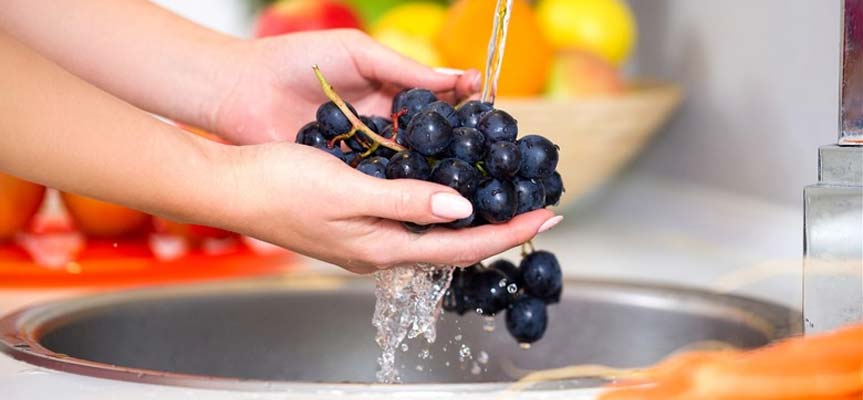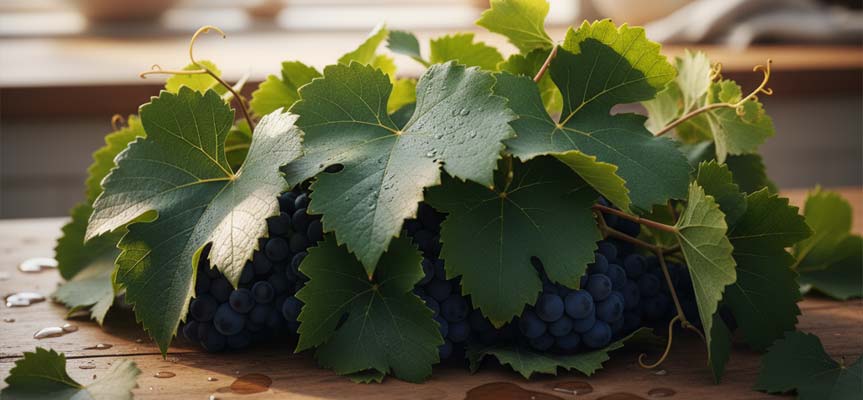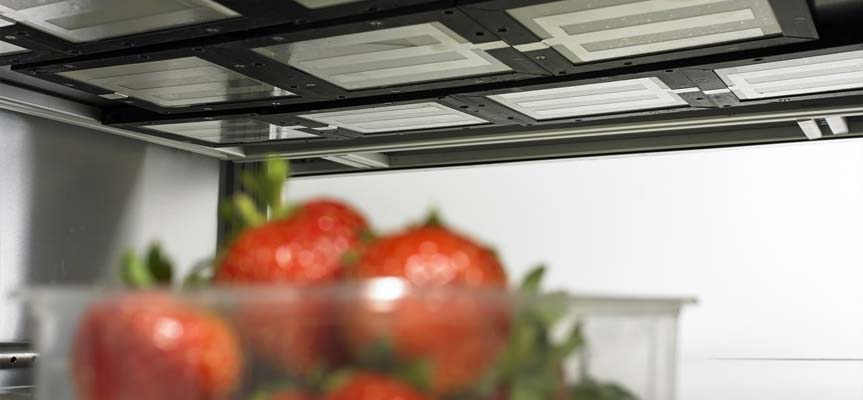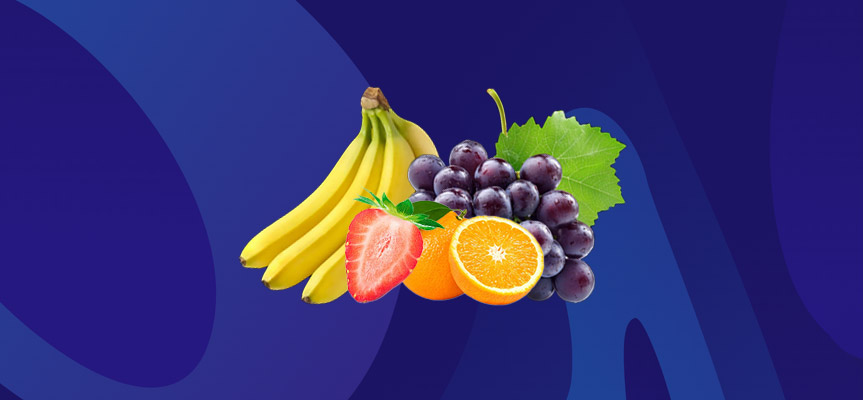Fruits and vegetables, as rich sources of vitamins, minerals, and antioxidant compounds, play a vital role in maintaining health and enhancing the function of various parts of the body, including the brain, digestive system, and even skin vitality. Regular consumption of these foods is an inseparable part of a healthy lifestyle; however, the main challenge in their daily use is preserving freshness and quality after purchase.
The key question is: How can we extend the shelf life of fruits using natural methods? Is refrigeration the only effective solution, or can traditional and natural techniques also play a significant role?
In this article, with a scientific and practical approach, we introduce methods that, without relying on chemical substances, help maintain freshness and prevent spoilage of fruits for a longer period.
Choosing Fresh and Healthy Fruits from the Start
The freshness and longevity of fruits begin at the moment of harvest. Farmers always strive to pick produce under optimal conditions, but the final quality of fruits is influenced by a set of pre-harvest and post-harvest factors. Climate, soil type, and access to water are among the most important pre-harvest factors, while washing, transportation, processing, packaging, and storage fall under post-harvest management.
Although consumers cannot influence these stages, correct selection and proper storage after purchase are crucial. Bruised, cracked, or damaged fruits spoil quickly and can contaminate others. This happens because damaged skin causes moisture loss and provides entry points for spoilage-causing microbes.
Thus, the first step in successful storage at home is careful selection during purchase. Firm, healthy fruits without blemishes or bruises last longer.
Proper Washing and Natural Disinfection
Many people are in the habit of washing fruits immediately after purchase and storing them in the refrigerator. While this may seem hygienic, it can actually shorten shelf life, since moisture creates a favorable environment for mold and bacteria. It is recommended to wash fruits only before consumption to better preserve freshness.
If early washing is necessary, natural solutions can be used for cleaning and disinfecting. A mixture of white vinegar and water in a 1:3 ratio provides gentle disinfection, while baking soda effectively reduces surface contaminants. These methods not only increase food safety but also help delay fruit spoilage.

Using Proper Storage Temperatures
Temperature plays a major role in fruit preservation. Some fruits last longer at lower temperatures, while others are best stored at room temperature.
- Tropical fruits: best stored at room temperature.
- Temperate fruits: refrigeration is the best option.
When using the refrigerator, each type of fruit should be stored at its optimal temperature to preserve freshness, quality, and natural flavor.
Storing Fruits Separately
Fruits release a gas called ethylene during ripening, which accelerates the process and can lead to faster spoilage. Therefore, some fruits, such as bananas and apples, should not be stored near others, as they can hasten their deterioration.
- Store apples and bananas separately.
- Keep grapes and strawberries in sealed containers in the refrigerator.
- Citrus fruits like oranges and lemons should be stored in separate compartments.
Traditional and Natural Storage Methods
Traditional and natural fruit storage methods have a long history in Iran and other countries. These household practices help preserve fruit quality and freshness without chemicals:
- Earthenware containers: keep fruits cool.
- Covering fruits with certain leaves (e.g., grape leaves): prevents drying.
- Using salt or lime in some regions: slows down rotting.
At home, simple practices can extend freshness: storing cut fruits in sealed containers, using plastic bags to reduce air exposure, and refrigerating dried fruits such as dates and plums are effective solutions.

Using Natural Substances such as Vinegar, Lemon, and Honey
Natural substances have antibacterial and antifungal properties. Acetic acid in vinegar and citric acid in lemon directly affect microbial growth.
A study published in the International Journal of Food Microbiology showed that washing strawberries with a diluted vinegar solution can reduce mold growth for up to seven days. In addition, honey, due to its enzyme glucose oxidase, has antimicrobial effects and has traditionally been used to preserve dried fruits.
Smart Packaging
Smart packaging is a modern method for extending fruit shelf life. These packages feature moisture control, oxygen absorbers, and antibacterial filters, all of which contribute to longer preservation.
In addition, air-conditioning systems in fruit storage environments can regulate temperature and humidity, preventing premature spoilage. The combination of both methods significantly extends the shelf life of fruits and vegetables.
- Absorbing excess moisture to prevent mold.
- Controlling oxygen and ethylene levels.
- Using color indicators to show freshness.
The Role of Natural Antioxidants in Extending Shelf Life
Fruits naturally contain antioxidants such as phenolic compounds, flavonoids, and vitamin C, which prevent oxidation and browning. For example:
- Rubbing lemon juice on cut apples prevents browning due to ascorbic acid.
- Phenolic compounds in grape and pomegranate skins have antifungal properties, increasing fruit longevity.
Research shows that using edible coatings enriched with natural antioxidants, such as aloe vera gel or green tea extract, provides a sustainable and effective preservation method in modern food industries.
Preventing Mold and Bacterial Growth
Mold growth is one of the most common causes of fruit spoilage. Research indicates that high relative humidity (above 85%) creates an ideal environment for mold. Therefore:
- Storing fruits in a dry, cool environment reduces mold risk.
- Natural coatings like aloe vera gel or edible starch act as a physical barrier against microorganisms.
A study in Food Hydrocolloids found that chitosan edible coatings (derived from shellfish exoskeletons) reduced spoilage in strawberries by up to 12 days.
Using Light and Shade in Natural Storage
Some fruits, such as dates and dried figs, last longest when stored in shaded areas with mild airflow. In contrast, direct sunlight triggers photo-oxidation, altering fruit color and flavor.
- Low light: suitable for drying fruits.
- Shade and cool environments: suitable for storing fresh fruits like pomegranates and citrus.
Innovative Methods and Recent Research
Recent studies in innovation centers and scientific institutions suggest that combining traditional methods with modern technologies yields the best results for extending fruit shelf life.
- Cold plasma: reduces microbial load on fruit surfaces.
- UV-C light: inactivates microorganisms without affecting quality.
- Surface probiotics: use beneficial bacteria to compete with harmful microbes.
These innovations promise a future where fruits are preserved both safely and without harmful chemicals.

Conclusion
By applying these methods to extend fruit shelf life, premature spoilage can be prevented. Nanocoatings, cold plasma, smart packaging, and ethylene control can be used both at home and in the food industry.
It is best to purchase fruits and vegetables in short intervals to minimize storage concerns. Proper storage is a small yet effective step toward smart food resource management.
Frequently Asked Questions
What is the best natural way to preserve fruits?
A combination of choosing healthy fruits, storing them at proper temperatures, and using natural substances such as vinegar or lemon yields the best results.
Can fruits be kept fresh without refrigeration?
Yes. Fruits such as bananas, mangoes, and dates keep better at room temperature. Storing them in earthenware containers or shaded areas also helps.
How can mold growth on fruits be prevented?
By controlling humidity, using proper packaging, and applying natural antifungal substances like honey and aloe vera.
Are there modern scientific methods for extending fruit shelf life?
Yes. Technologies such as cold plasma, UV-C light, and advanced edible coatings have shown very positive results in scientific studies.

